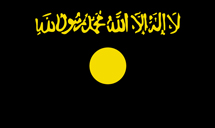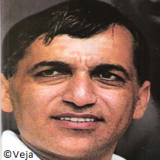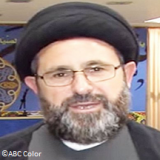
Brazil enacted its first counterterrorism law in 2016, but the country continues to allow representatives of internationally designated entities freedom of movement in the country.

Hezbollah continues to use Brazil as a fundraising and planning base of operations. The Brazilian government has in the past referred to Hezbollah as a political movement, rather than a terrorist group.
Overview
Numerous terrorist groups operate in Brazil’s southwest near its border with Argentina and Paraguay. The region, known as the Tri-Border Area (TBA) of South America, is considered a hotspot for criminal and terrorist activity. U.S.-sanctioned terrorist groups, including Hezbollah, al-Qaeda, and Hamas, are believed to recruit, plan attacks, and fundraise in the TBA, and within Brazil specifically. * The Brazilian security forces are aware of members of Hezbollah and al-Qaeda residing in Brazil, but have not arrested these individuals. Hezbollah representative Bilal Mohsen Wehbe freely serves as the imam of São Paulo mosque, * while al-Qaeda propagandist Khaled Hussein Ali is a naturalized citizen whom Brazilian authorities previously released because of then-existing gaps in the country’s counterterrorism laws. *
Brazil harbors internationally sanctioned extremists affiliated with al-Qaeda * and Hezbollah. * These individuals have been sanctioned by the United States and United Nations, yet they continue to reside in Brazil without repercussion.
Extremist Groups Operating in Brazil
According to a 2013 Brazilian media report, the Brazilian Federal Police identify seven terrorist groups operating in Brazil, including al-Qaeda and its Jihad Media Battalion propaganda arm, Hezbollah, and Hamas. * While the Brazilian government has sought to limit the activities of some of these groups, it has also had direct political relations with others. A 2008 cable from U.S. Ambassador Clifford Sobel, as revealed by Wikileaks, decried Brazil’s refusal to “legally or even rhetorically label U.S.-designated terrorist groups such as Hamas, Hizballah or the FARC (the Revolutionary Armed Forces of Colombia) as terrorist groups.” Sobel further accused Brazil of maintaining that Hezbollah and Hamas are political movements, not terrorist groups. * Al-Qaeda members have also used Brazil as a fundraising hub. *
 Al-Qaeda
Al-Qaeda
Al-Qaeda is a global jihadist network that believes it must defeat the United States before it can secure the creation of a global Islamic caliphate. * In addition to the September 11, 2001, attacks in the United States, al-Qaeda is responsible for the 1998 bombings of the U.S. embassies in Kenya and Tanzania, the 2002 Bali bombing, the 2004 Madrid bombing, and the 2005 London bombing. Al-Qaeda reportedly also operates out of the TBA, where its traffics in drugs, arms, and uranium. The group’s roots in the region trace back to 1995, when Osama bin Laden traveled to the TBA and participated in meetings at local mosques, according to the Library of Congress. In 2001, Brazilian Judge Walter Fanganiello Maierovitch told Brazilian media that bin Laden attempted to train terrorists and hide Islamic fugitives in regional religious establishments. * Since then, al-Qaeda members have reportedly raised money and recruited from within Brazil. *
Designated by:
Australia, Canada, France, EU, India, Israel, New Zealand, United Arab Emirates, Kingdom, United Nations, United States
 Hezbollah
Hezbollah
The Lebanon-based, Iranian-backed terrorist group has reportedly operated out of South America’s TBA since the mid-1980s. The group is believed to recruit from a sizable local population of Lebanese immigrants, who arrived in South America after both the 1948 Arab-Israeli war and the Lebanese civil war. * Specifically, Hezbollah members have reportedly raised money and recruited from within Brazil. * According to a 2013 report by murdered Argentine prosecutor Alberto Nisman, Iran is using Hezbollah to carry out intelligence activities in Brazil and other South American countries. * Nisman found that Iranian and Hezbollah agents planned the 1994 AMIA Jewish community center bombing in Argentina from Brazil and other South American countries. * Nisman discovered 12 Hezbollah-linked individuals who reside or resided in Brazil, seven of whom were directly or indirectly involved in the AMIA bombing. * In July 2016, Brazilian police arrested Hezbollah operative Fadi Hassan Nabha. However, police arrested Nabha on international drug trafficking charges, not terrorism- or Hezbollah-related charges. * Other U.S.-designated Hezbollah operatives have openly traveled through Brazil. For example, senior Hezbollah official Sobhi Mahmoud Fayad traveled from Paraguay through Brazil on his way to Saudi Arabia in September 2016. *
Designated by:
Arab League, Australia, Bahrain, Canada, European Union, France, Germany, Gulf Cooperation Council, Israel, Netherlands, New Zealand, United Kingdom, United States
 Hamas
Hamas
Hamas is a U.S.-designated terrorist organization that openly seeks the destruction of Israel in order to create an Islamic state of Palestine between the Jordan River and the Mediterranean Sea. Hamas primarily relies on what it calls armed resistance and has killed hundreds of Israeli citizens, as well as Americans, in suicide bombings and other terrorist attacks. * Hamas members have reportedly raised money and recruited from within Brazil. * The Brazilian government has reportedly maintained ties with the Palestinian terror group. In 2008, Brazil’s ambassador to the United States, Antonio Patriota, declared that Brazil had not designated Hamas a terrorist organization because it maintains an active political wing. * In February 2016, the Palestinian Authority opened an embassy in Brazil—the Palestinians’ first in the Western Hemisphere. In 2015, the Brazilian magazine Veja cited an unnamed Brazilian security official who called the embassy “a sovereign Hamas area now” because diplomats and their vehicles are exempt from security checks. * Michel Temer replaced Rousseff as president in 2016 after the latter’s impeachment. *
Designated by:
Australia, Canada, Egypt, EU, Israel, Japan, Jordan, New Zealand, United Kingdom, United States
Harboring Terrorist Leaders and Financiers
Brazil specifically has harbored terrorist operatives and financiers from various extremist groups, including al-Qaeda and Hezbollah.

Khaled Hussein Ali
Chief of al-Qaeda’s Propaganda Arm in Brazil
- Alleged leader of al-Qaeda’s online propaganda arm in Brazil, the Jihad Media Battalion (JMB). JMB publicized al-Qaeda’s attacks and distributed communications from its leaders in 17 countries. According to the Brazilian weekly Veja, Ali also provided logistical support for al-Qaeda operations. *
- Obtained Brazilian legal residency status in 1998. *
- As of 2011, Ali lived in São Paulo, from where he reportedly ran the JMB. *
- The Federal Police of Brazil arrested Ali in March 2009 after a four-month-long investigation in collaboration with the FBI. Ali was indicted on charges of racism, incitement to crime, and gang formation after authorities found that he disseminated anti-Western, anti-Semitic, and other racial propaganda online on behalf of the JMB. *
- Imprisoned between April 24, 2009, and May 15, 2009, for his suspected involvement with the JMB. * He was released on May 16, 2009, because Brazilian law at the time did not include any anti-terrorism provisions that would allow authorities to charge him with terrorism. * Ali turned over his Lebanese passport to federal authorities so that he would not be able to leave Brazil. *

Bilal Mohsen Wehbe
Hezbollah’s Chief Representative in South America
- A naturalized Brazilian citizen who has operated in the Tri-Border-Area (TBA) of Brazil, Paraguay, and Argentina since at least 2000. *
- Previously worked for the office of Iranian Supreme Leader Ayatollah Ali Khamenei, whose regime is Hezbollah’s primary sponsor. * Wehbe also accompanied Hassan Khomeini, a grandson of Iran’s first supreme leader, Ayatollah Ruhollah Khomeini, on his 2015 tour of Brazil and Paraguay. *
- Fundraised for Hezbollah and conveyed funds from Brazil to the terrorist group in Lebanon. He has also overseen Hezbollah’s counterintelligence activities in the TBA. * Following Hezbollah’s 2006 war with Israel, Wehbe and another individual raised over $500,000 for Hezbollah from Lebanese businessmen in the TBA. *
- On December 9, 2010, the U.S. Department of the Treasury designated Wehbe a Specially Designated Global Terrorist. *
- As of May 2017, Wehbe freely serves as the imam of the Brás Mosque in São Paulo and as a leader of the Centro Islâmico no Brasil (Islamic Center of Brazil). * He reportedly regularly participates in prayers, meetings, and educational events sponsored by the latter. *
- As of late 2017, Wehbe continues to operate freely in Brazil, where he remains a prominent Islamic cultural leader. * As of November 2017, Brazilian authorities “have not interfered with his activities,” according to testimony by the Foundation for the Defense of Democracies to the U.S. House Foreign Affairs Committee. *
Snapshot of Brazil Counterterrorism Legislation and Initiatives
National Security Law [1980]: Brazil’s National Security Law allowed for the prosecution of terrorist-related activity without clearly defining terrorism. *
Law No. 13.260 [2016]: Enacted in March 2016, Law No. 13.260 criminalized terrorism, advocacy for terrorism, and terrorist financing. The law defined terrorist acts as a set of violent activities carried out “for reasons of xenophobia; discrimination; or prejudice in regard to race, color, ethnicity, or religion” if intending to cause “social or generalized terror” by “exposing persons, property, public peace, or public safety to danger.” * Law No. 13.260 further criminalized preparatory acts that could lead to terrorism. The law imposed penalties of 12 to 30 years’ imprisonment for terrorism and 15 to 30 years for terrorist financing. *
Continued Counterterrorism: In February 2017, Brazil passed legislation to block access to assets and property by those convicted of terrorist offenses. * The U.S. Department of State has noted that counterterrorism efforts in Brazil have been “hindered by inter-service rivalries.” The State Department noted that “consolidated and automatic information sharing” between agencies as well as additional resources to the police and Ministry of Justice were needed in order to improve the country’s counterterrorism operations. *
Policy Prescriptions
In order to combat terrorism and terrorist financing, Brazil will need to fully enforce its own counterterrorism policies and clarify its positions on al-Qaeda, Hamas, and Hezbollah. Brazil’s inadequate terror laws prior to 2016 allowed for the release of al-Qaeda operative Khaled Hussein Ali in 2009. Further, the Brazilian government is aware of the presence of Hezbollah operative Bilal Mohsen Wehbe. Brazil must proactively apply its counterterrorism law to arrest these individuals and deny them freedom to operate within the country. The United States should recognize that pressuring Brazil to adopt this political will—and make any strides to its existing framework—is paramount to a strong and effective counterterrorism strategy.
Specifically, CEP calls upon Brazil to:
- Arrest or expel all wanted and internationally designated individuals inside its borders, including al-Qaeda operative Khaled Hussein Ali and Hezbollah operative Bilal Mohsen Wehbe
- Revoke the citizenship of naturalized Brazilian citizens involved with internationally sanctioned terrorist organizations, including financiers and foreign fighters
- Expel or arrest all members of the al-Qaeda, Hezbollah, and Hamas delegations currently domiciled inside Brazil
- Clarify the Brazilian’s government’s positions on al-Qaeda, Hezbollah, and Hamas, as well as Brazilian actions to limit their operations in the country
- Cut diplomatic and political ties with internationally designated extremist organizations
- Enhance communication, coordination, and cooperation between counterterrorism agencies, police, and government ministries
- Draft, publicize, and maintain a list of designated terrorist entities
- Submit designated entities and individuals affiliated with those entities to the ramifications outlined in Brazil’s existing counterterrorism legislation